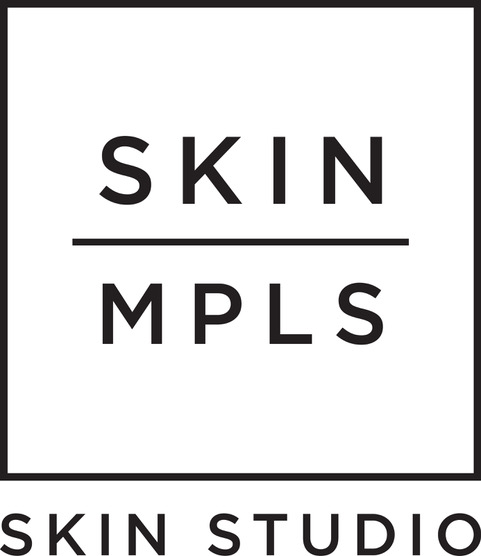Vitamins, Minerals, and Hormones That Affect Your Skin
We and you all know that we are aestheticians, not doctors. However, some internal health factors can contribute to skin issues, and as skin experts, we have to share this information!
The right skincare products and protocols can work some serious magic on acne, premature aging, and chronic dry skin, but sometimes internal factors are too strong for the skin to overcome. We are pretty sure that it's actually your skin that is a window to your soul, despite the popular saying. If you are genuinely using your skincare regimen and still aren't happy with the way your complexion looks, here are some troubleshooting scenarios we've seen firsthand that help clients achieve clear, bright skin.
Micronutrient Deficiencies
If you are feeling tired and rundown, discuss this with your doctor, as they may want to check some key nutrient levels at your next physical. Low vitamin D and zinc levels have been identified as a common denominator in some individuals with acne. B12 and magnesium are crucial for producing energy and protein, which can be reflected in the health and firmness of your skin. While a supplement can be a great start, you don't want to overdo it with vitamins (especially if you have acne-prone skin). Consult your doctor for guidance on supplements.
Our tip: We know supplements in the proper doses can be a relief, so consider Face Reality's Balance and Restore to take a lot of the thinking and effort out of trying to figure out the correct dosing. You can read more about additional skin-supporting supplements here. However, you should also look for food sources that are rich in nutrients as well. Speaking of food, food intolerances are well-documented to block bodies from getting proper nutrition, so with the guidance of a nutritionist or a doctor, you could try out some of the foods commonly known to cause intolerances, such as gluten, dairy, eggs, nuts, or histamines. They'll have you avoid the food category that you're suspicious of for several weeks to see if you notice any changes.
Cortisol
Stress affects the body in every way, but did you know that it also directly impacts the appearance of our skin? One of the most significant signs of high cortisol levels in the skin is acne, as cortisol stimulates the body to produce excess sebum. Excess cortisol can also cause inflammation, which can manifest as red, puffy, thinning, or sensitive skin.
Cortisol can also make a person prone to a compromised immune system and a weakened skin barrier, which can cause skin flare-ups or dermatitis. Even though cortisol is known as the "stress hormone," you can have elevated cortisol levels without being under excess stress. Chronically raised cortisol can be a sign of a broader issue, but the first step is prioritizing yourself and wellness.
Our tip: A skincare routine and relaxing face massage are two of our favorite ways to help relieve stress. Wellness rituals of some type (such as exercise, stretching, walking, meditation, or talking to friends) are essential for both the soul and the skin.
Testosterone
Testosterone is an essential hormone for both males and females. An overproduction of testosterone in acne-prone people leads to stubborn pimples. Excess testosterone can also lead to oily skin and increased facial hair growth. There are medications and treatments to manage testosterone.
Our tip: Oysters, ashwagandha, peanut butter, and weight lifting are among the many things known to elevate testosterone levels. If you know you have elevated testosterone, you should find alternatives to these things and work harder with your skincare products and treatments, and be more strict with your lifestyle choices to avoid those known to trigger acne in the meantime.
Vitamin A
Vitamin A is an underrated nutrient! It is a crucial nutrient for the heart, lungs, reproductive health, eyes, and skin, and aids in the absorption of all other nutrients. Vitamin A deficiencies are another common denominator in people affected by acne. Supplementing with vitamin A can be safe in small amounts, but it's always best to consult your doctor to determine the proper protocol for you. Sweet potatoes, carrots, spinach, and mangos are all delicious sources of vitamin A to get you started. Glowing skin comes from great products, but also from colorful foods!
Our tip: Vitamin A, both internally and externally, plays a crucial role in maintaining healthy skin. One is not a trade-off for another. Look for foods high in vitamin A content and use your recommended retinoid topically for ultimate results!
Electrolytes
Electrolytes are essential minerals in the body, like chloride, potassium, magnesium, and sodium, that carry an electric charge and are crucial for many bodily functions. Electrolytes play a crucial role in maintaining skin hydration and pH balance. Additionally, the popular acne medication Spironolactone can affect your electrolyte balance; therefore, testing your levels while on the medication is highly recommended.
Our tip: Supplementing with electrolytes is widely regarded as safe, but you can always test your levels with your doctor before starting. Additionally, it's worth noting that electrolytes can trigger acne due to their iodine content. If you're highly acne-prone, consider drinking coconut water to get some electrolytes without the iodine portion. Additionally, drinking bottled Fiji or Evian water is a natural way to obtain acne-safe electrolytes that may be filtered out of your tap water at home.
